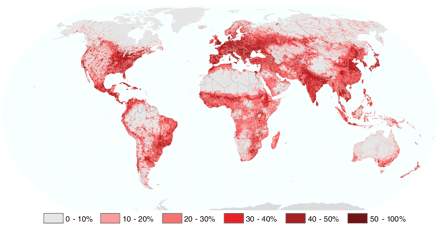A study published in tomorrow’s Nature (news item) suggests that previous estimates of the value of biodiversity in supplying ecosystem services may have consistently underestimated its importance. This is because previous efforts looked at single services, such as clean water or pollination. Professor Andy Hector from the University of Zurich, Switzerland and Dr Robert Bagchi from the University of Oxford developed a new method to look at multiple ecosystem processes in the same analysis. According to Professor Hector “previous analyses have been too narrowly focused … and have effectively assumed that the species that are important for one ecosystem service can provide all the other services too – but that doesn’t seem to be the case”.
Applying their method to data from European grasslands, Hector and Bagchi found that higher levels of biodiversity were required when all seven of the measured ecosystem services were taken into account than when focusing on any single ecosystem service in isolation. Moreover, different ecosystem services were affected by different groups of species. Dr Bagchi explained that “because different species influence different ecosystem services more species are required for a fully-functioning ecosystem than for one managed with a single goal in mind”.
What’s really neat is that the researchers are now testing their ideas in the tropics. Professor Hector is one of the lead researchers on the Sabah Biodiversity Experiment in Malaysian Borneo, which investigates whether tree-replanting schemes are more successful in restoring fully-functioning forest ecosystems when they use a high diversity of species than the monocultures that are usually planted. That’ll be one to watch.
